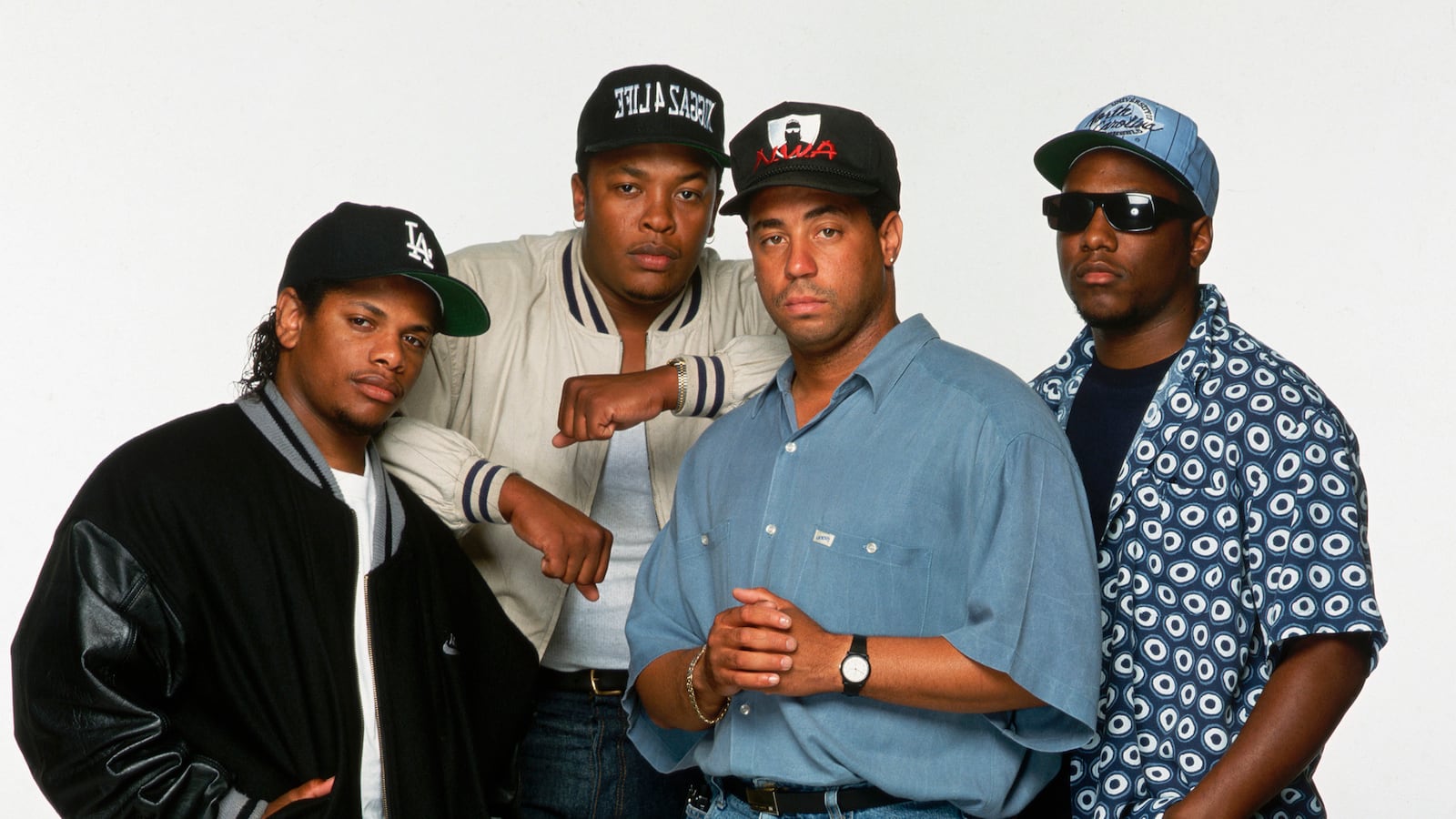You’ll have to wait ’til August to see Straight Outta Compton, the biopic on N.W.A, the groundbreaking gangsta rap group that rose to fame in the late Reagan era. But the trailer for the film, released during the 2015 Grammy Awards, is now online, featuring an introduction by Dr. Dre and Ice Cube:
“In 1984, I met Compton’s best DJ,” Ice Cube said in a statement to MTV News. “His name was Dr. Dre, the cousin of my homie Sir Jinx. He liked the neighborhood rhymes I was spitting and we started hanging out all the time. Talking and thinking music. A couple of years later, Dr. Dre’s little hustling friend Eric (Eazy-E) Wright started coming around. We all created a song together called ‘Boyz-N-The-Hood’…and the world would never be the same.”
Nearly three decades on, few recall just how terrifying N.W.A—short for “Niggaz With Attitude”—was to many Americans in the late ’80s. The group’s protest anthem “Fuck tha Police” pissed off the LAPD, the FBI, and the Secret Service. Its music was banned from public libraries, radio, and retail chains. And the politicians, pundits, and protesters readily sharpened the culture-war knives.
“We’re letting people know that America’s not a bowl of cherries,” Dr. Dre said in 1989. “People expect it to be all sunshine and palm trees. I don’t see any palm trees where I’m from.”
Here are three news clips that show how dangerous—both on a political and cultural level—the rap group was when it exploded onto the national stage:
‘Frankly Offensive’
This CBS piece highlights the efforts of the Minnesota attorney general, Hubert Humphrey III, to prosecute record stores that sold N.W.A’s Straight Outta Compton to minors. “This is frankly offensive to me, and to any parent,” he said of his efforts. “If they were to hear and know what these lyrics were all about, they would know that they’re nothing but filth.” Oddly enough, Humphrey’s problem lay with the group’s sexually explicit lyrics and not their violent content.
Young Black Men & Law Enforcement
This segment, also from CBS, is drawn from a larger piece on the role of “gangsta rap” in anti-police rhetoric. N.W.A was at the center of a running debate over whether the rappers were inciting violence or merely describing existing social conditions in urban neighborhoods. Police unions came out strongly against N.W.A’s “obscenity-filled message for law enforcement.”
The World’s Most Dangerous Group
This clip is from a Chris Rock-narrated VH1 documentary on the group. Featuring clips from some goofy, more sympathetic white reporters, it examines how N.W.A gained acceptance from the mainstream media, which would eventually amplify the group’s message: “The controversy over their music had opened the door for gangsta rap, exposing it to suburban America,” Rock says.







